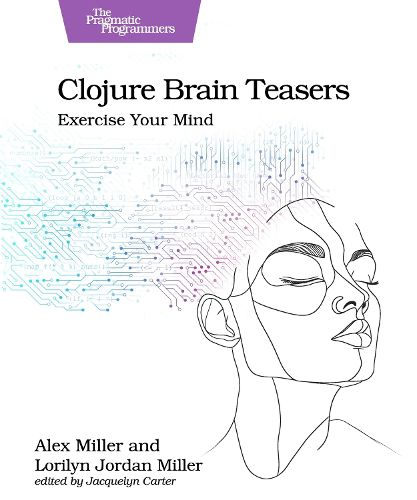Readings Newsletter
Become a Readings Member to make your shopping experience even easier.
Sign in or sign up for free!
You’re not far away from qualifying for FREE standard shipping within Australia
You’ve qualified for FREE standard shipping within Australia
The cart is loading…






Challenge your knowledge of Clojure with 25 short Clojure teasers, sometimes with surprising results! Inspired by years of developer questions and feedback, these teasers are handpicked to clarify common points of confusion. Each code challenge illustrates Clojure's elegant design, explaining how and why it works. Enjoy these simple exercises solo or with friends to find gaps in your knowledge, challenge assumptions, and gain valuable insights. Tackle the most common points of confusion Clojure developers encounter, become more efficient when writing and debugging, and better predict the outcomes of Clojure code. Regardless of your Clojure experience, you're certain to learn something new.
You know Clojure, but do you really understand it? You may know the mechanics and idioms, but what about the deeper, implicit concepts driving the design? Discover and explore the real Clojure, testing and supplementing your understanding of why this data-driven functional programming language works the way it does.
You'll start with the basic concepts such as numeric types, numeric promotion, and logical truth. But the backbone of Clojure is its focus on immutable data, centered around the Clojure collections. Learn about collection equality, polymorphism on nil, adding and finding elements in different collection types, and sorted collections. Explore Clojure's evaluation model, including the Clojure reader, quoting, evaluation, and macro expansion. Finally, learn about the core library functions like case, concat, for, partial, and the details of type hinting, vars, and destructuring. Understand the peculiarities of these functions and how to apply them to your advantage in future programs.
Use these new insights to build your own concise, expressive, and flexible code. Don't just use Clojure, master it.
What You Need:
Java 8 or higher Clojure 1.11 or higher
$9.00 standard shipping within Australia
FREE standard shipping within Australia for orders over $100.00
Express & International shipping calculated at checkout
Challenge your knowledge of Clojure with 25 short Clojure teasers, sometimes with surprising results! Inspired by years of developer questions and feedback, these teasers are handpicked to clarify common points of confusion. Each code challenge illustrates Clojure's elegant design, explaining how and why it works. Enjoy these simple exercises solo or with friends to find gaps in your knowledge, challenge assumptions, and gain valuable insights. Tackle the most common points of confusion Clojure developers encounter, become more efficient when writing and debugging, and better predict the outcomes of Clojure code. Regardless of your Clojure experience, you're certain to learn something new.
You know Clojure, but do you really understand it? You may know the mechanics and idioms, but what about the deeper, implicit concepts driving the design? Discover and explore the real Clojure, testing and supplementing your understanding of why this data-driven functional programming language works the way it does.
You'll start with the basic concepts such as numeric types, numeric promotion, and logical truth. But the backbone of Clojure is its focus on immutable data, centered around the Clojure collections. Learn about collection equality, polymorphism on nil, adding and finding elements in different collection types, and sorted collections. Explore Clojure's evaluation model, including the Clojure reader, quoting, evaluation, and macro expansion. Finally, learn about the core library functions like case, concat, for, partial, and the details of type hinting, vars, and destructuring. Understand the peculiarities of these functions and how to apply them to your advantage in future programs.
Use these new insights to build your own concise, expressive, and flexible code. Don't just use Clojure, master it.
What You Need:
Java 8 or higher Clojure 1.11 or higher